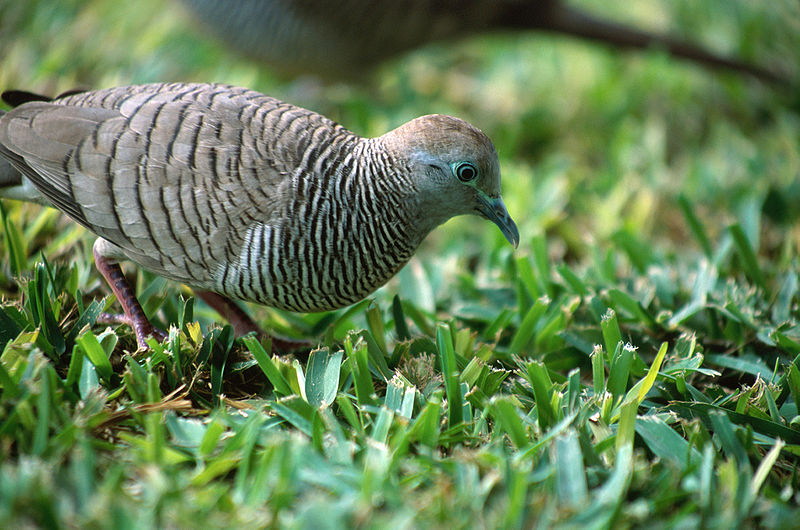To be christened with the name “peaceful” among a group of birds already well-known for their calm demeanors is quite an accomplishment. Yet the beautiful little Zebra or peaceful dove (Geopelia striata) lives up to its reputation admirably. Confiding in humans, the zebra dove gets along very with finches, canaries and button quail, and makes a fine parent if left undisturbed while nesting.
Description and Range
 The zebra dove ranks just behind the closely related diamond dove and the ring dove in popularity, and captive bred birds are readily available. Ranging from Thailand south through Malaysia and Indonesia to Australia, escaped and released zebra doves are also established in Hawaii, Madagascar, California and other places.
The zebra dove ranks just behind the closely related diamond dove and the ring dove in popularity, and captive bred birds are readily available. Ranging from Thailand south through Malaysia and Indonesia to Australia, escaped and released zebra doves are also established in Hawaii, Madagascar, California and other places.
At 9 inches long, the zebra is one of the smallest available doves. This, and its quiet but attractive colors (gray with a red blush about the neck with black and white striped sides) render it ideal for those with limited space.
Keeping Zebra Doves
Although adaptable to a large parrot cage (where floor space is more important than height), this delightful little bird shows itself to best advantage in an outdoor aviary, at least during the warmer months. If approached slowly, zebra doves adjust well to people…habituated birds kept indoors should be allowed free flight time if at all possible.
Zebra dove care closely follows that of the diamond dove (please see article below). They are, however, less cold-tolerant than their smaller relative, and more likely to abandon their nest if disturbed. Therefore, the zebra dove cage or aviary should always be located in a quiet location. In a well-planted aviary or spacious cage, however, they often become quite trusting of people and may breed regularly.
Further Reading
Zebra doves can be cared for in much the same manner as diamond doves. Please see my article, Diamond Dove Care, for further information.
To learn more about the keeping the popular ring dove, please see Aviary Birds: the Ring or Collared Dove.
 That Bird Blog – Bird Care and History for Pet Birds
That Bird Blog – Bird Care and History for Pet Birds
